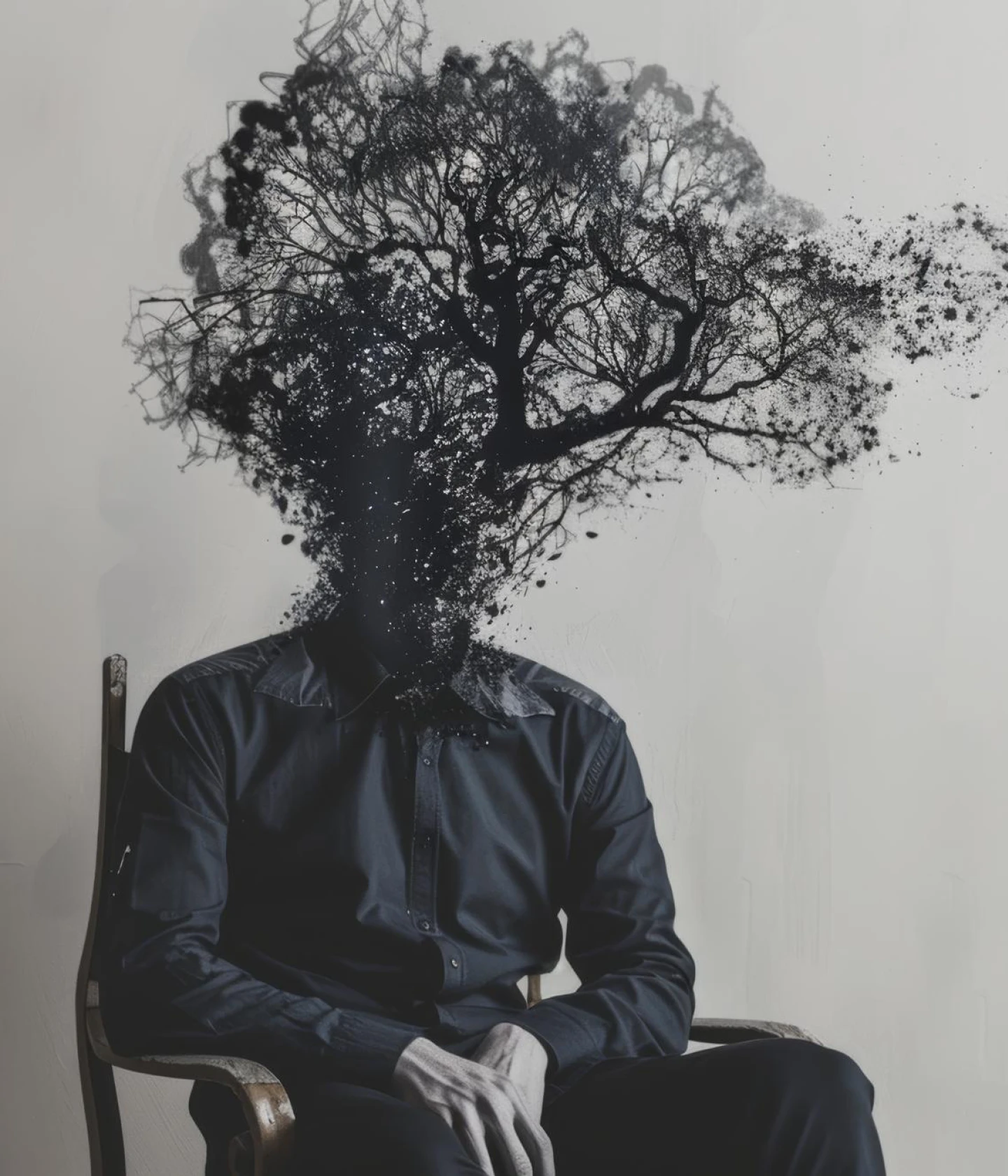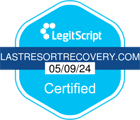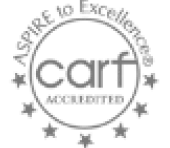We work with insurances. Verify yours now
Written by


Dual diagnosis refers to the coexistence of addiction and a mental health disorder at the same time.[1]
People with dual diagnosis often experience overlapping symptoms, which can make substance abuse worse and complicate their overall well-being.
Effective treatment for dual diagnosis requires an integrated approach that addresses both conditions at the same time, helping you alleviate your symptoms and establish your recovery with the right support for long-term sobriety.
Dual diagnosis, also known as a co-occurring disorder, refers to a condition where a person simultaneously experiences both a mental health disorder and a substance use disorder. For example, a person might have both depression and alcohol addiction or an anxiety disorder and opioid dependence.
The relationship between these conditions can be complex, as they often interact with one another and can make the recovery process more complicated.[2]
Dual diagnosis issues are relatively common, with over 7 million people in the US estimated to have concurrent mental health and substance use disorders.[3] Unfortunately, over 50 percent of people with co-occurring disorders never receive either mental health or substance abuse treatment.

Dual diagnosis can have profound, far-reaching impacts on a person’s life, affecting their mental and physical health, relationships, and overall quality of life.[4]

Substance addictions that commonly co-occur with mental health conditions include:[7]
These addictions frequently overlap with mental health conditions.[8] The coexistence of these conditions isn’t random – people struggling with mental health issues may turn to substances as a form of self-medication, while substance use can also trigger or exacerbate mental health problems. For example, those with mood disorders might be more prone to using substances that alter their mood, while those with anxiety disorders might gravitate towards substances with calming effects. Multiple substances can also be abused, further complicating the experience.
Understanding the potential for these conditions to coexist is critical for effective diagnosis and comprehensive care at a dual-diagnosis treatment center

Autor, Medical content writer
Sed ut perspiciatis unde omnis iste natus error sit voluptatem accusantium doloremque laudantium.
Struggling with dual diagnosis issues frequently requires a full spectrum of addiction treatment care, complete with several evidence-based and holistic interventions for total-person wellness
Ongoing support and resources after completing primary treatment to maintain your sobriety and prevent relapse.
Medical and psychological intervention aimed at safely managing withdrawal symptoms and preparing you for further treatment.
Structured therapy and education sessions designed to involve and support family members in the recovery process of their loved ones.
Residential treatment program where you’ll receive intensive therapy and therapeutic programming within a controlled environment.
Structured treatment program that provides intensive therapy and support while allowing you to live at home or in another treatment environment and continue with daily activities.
These facilities are residential spaces providing a supportive environment for those in recovery to live independently while maintaining sobriety and integrating into daily life.
Day treatment program offering intensive therapeutic and medical support without overnight stays.
Anxiety can be paralyzing, especially when coupled with substance use. Our treatment helps you develop healthier coping mechanisms, regain control, and build confidence in daily life.
Depression often fuels addiction, creating a cycle that feels impossible to break. Through evidence-based therapy and holistic healing, we help you rediscover hope and purpose.
Unresolved trauma can drive substance use, but healing is possible. Our specialized therapies, including equine-assisted and experiential therapy, provide a safe space for processing and recovery.
The extreme highs and lows of bipolar disorder can make addiction even more challenging. We offer integrated treatment that balances mood stabilization with substance use recovery.
When OCD and addiction intersect, it can be difficult to find relief. Our evidence-based therapies help you manage compulsions while addressing substance dependence.
Many individuals turn to stimulants or other substances to manage ADHD symptoms. Our program provides alternative strategies to improve focus and emotional regulation without reliance on drugs.
Self-harm and addiction often go hand in hand. Our compassionate approach provides the tools to replace harmful behaviors with healthier, life-affirming choices.
Constant stress can lead to self-medication with alcohol or drugs. Our treatment incorporates mindfulness, therapy, and stress-reduction techniques to help you regain balance.
Losing a loved one or experiencing major life changes can push people toward substance use. Our program helps you process grief in a healthy way, without relying on substances.
When emotional regulation becomes a struggle, addiction often follows. We help individuals develop new skills to manage anger, impulsivity, and destructive patterns.
We’re here to be the solution you seek and empower you to pursue the healing you need. Reach out for help today and step forward in confidence.
Paying for treatment should never be a barrier to recovery and healing. There are several options available that do not put your family in financial jeopardy. The Last Resort is an in-network provider that works with most insurance companies.








We’re excited to share the positive experiences of our other community members, many of whom were where you are today – overwhelmed and uncertain. These are their stories. What will yours be?
Come experience a healing adventure like none other. Our expansive and secluded men’s-only ranch sits on 55 acres of central Texas beauty and is a tranquil sanctuary designed to promote rest, reflection, and recovery.
From rolling hills and ancient tree groves to warm ranch-style accommodations, you’ll feel right at home. You’ll enjoy a full range of amenities and experiences, including an outdoor pool oasis, a fitness studio, and a fully-stocked horse barn.
Our secondary location is a comfortable, modern facility with shared and private spaces that is home to all of our outpatient services. This center is conveniently located in south Austin off Menchaca Rd.
When drug or alcohol addiction takes root in your life, it colors everything you do, how you show up at work, at home, and for yourself. Your family often feels the worst of it. You know this is not what you had in mind for your life. There has to be a healthier way to manage your emotional distress and overcome the challenges you face.
As the opioid epidemic has continued to explode, so has the treatment industry. Unfortunately, not all are of the same quality or the same caliber.
Accredited status for our addiction treatment center confirms that the services we offer meet or exceed the official standards of practice established by the state and other governing organizations by passing a series of detailed assessments.
Understanding accreditation affords you and your loved ones the confidence to pursue long-term recovery with renewed peace of mind.




If you or a loved one is battling alcohol or drug addiction, you’re in the right place. Even if you’ve tried other treatment programs or think you’re at the end of the line, this is the community you need to thrive. We can’t wait to facilitate your recovery and be part of your success story.
As part of our commitment to clients and families, we share high-quality resources, industry-related news, and practical education with those in our circle of influence. We hope these resources equip and inspire those who read them to take positive, healthy action.
The goal of all content is to empower and equip without compromise. Every resource The Last Resort creates is not supported by sponsorship or advertisers and is therefore free of bias and murky agendas.
All of our educational materials are produced or reviewed by the team at The Last Resort. We staff and consult with subject matter experts and industry professionals to ensure all that is shared is accurate and accessible.
Treatment at dual-diagnosis treatment facilities involves integrated care where both mental health disorders and substance use disorders are addressed at the same time. This typically includes interventions that focus on both issues and holistic approaches that promote overall well-being. Therapies such as CBT, DBT, and trauma-informed care are often utilized to address underlying issues and develop coping skills.
Aftercare services at dual diagnosis rehab centers are essential for supporting long-term recovery. These may include outpatient therapy, support groups, relapse prevention planning, and ongoing monitoring of mental health and substance use. Case managers or counselors often help coordinate aftercare services to ensure a seamless transition and sustained support post-treatment.
Many dual diagnosis rehabs accept private health insurance plans, including those provided by employers or purchased individually. Depending on eligibility and the specific services provided, Medicaid and Medicare may also cover some or all of the costs. Some facilities offer sliding-scale fees based on income or financial need, making treatment more affordable for those without insurance coverage. Additionally, some individuals may choose to pay for treatment out-of-pocket or through financing options offered by the rehabilitation center.
[1] MedlinePlus. (2019). Dual Diagnosis. Medlineplus.gov; National Library of Medicine. https://medlineplus.gov/dualdiagnosis.html on June 21, 2024
[2] NAMI. (2017, October 4).. NAMI. https://www.nami.org/advocate/understanding-dual-diagnosis/ on June 21, 2024
[3] National Institute on Drug Abuse. (2018, August 15). Comorbidity: Substance Use and Other Mental Disorders. National Institute on Drug Abuse. https://nida.nih.gov/research-topics/comorbidity/comorbidity-substance-use-other-mental-disorders-infographic on June 21, 2024
[4] Buckley, P. F. (2006). Prevalence and consequences of the dual diagnosis of substance abuse and severe mental illness. The Journal of Clinical Psychiatry, 67 Suppl 7, 5–9. https://pubmed.ncbi.nlm.nih.gov/16961418/ on June 21, 2024
[5] Substance Abuse and Mental Health Services Administration. (2023, July 26). Co-Occurring disorders and other health conditions. Www.samhsa.gov. https://www.samhsa.gov/medications-substance-use-disorders/medications-counseling-related-conditions/co-occurring-disorders on June 21, 2024
[6] National Institutes on Drug Abuse (US). (2020, April 1). Common Comorbidities with Substance Use Disorders Research Report. NCBI Bookshelf. https://www.ncbi.nlm.nih.gov/books/NBK571451/on June 21, 2024
[7] Richesson, D., Jr., Hoenig, J., & Substance Abuse and Mental Health Services Administration. (2021). Key Substance Use and Mental Health Indicators in the United States: Results from the 2020 National Survey on Drug Use and Health. In RTI International, Substance Abuse and Mental Health Services Administration [Report]. https://www.samhsa.gov/data/sites/default/files/reports/rpt35325/NSDUHFFRPDFWHTMLFiles2020/2020NSDUHFFR1PDFW102121.pdf on June 21, 2024
[8] Co-Occurring Mental Illness and Substance Use Disorders (CODs). (n.d.). https://www.ncsc.org/__data/assets/pdf_file/0013/14512/mhf3-cods-mar2020.pdf on June 21, 2024